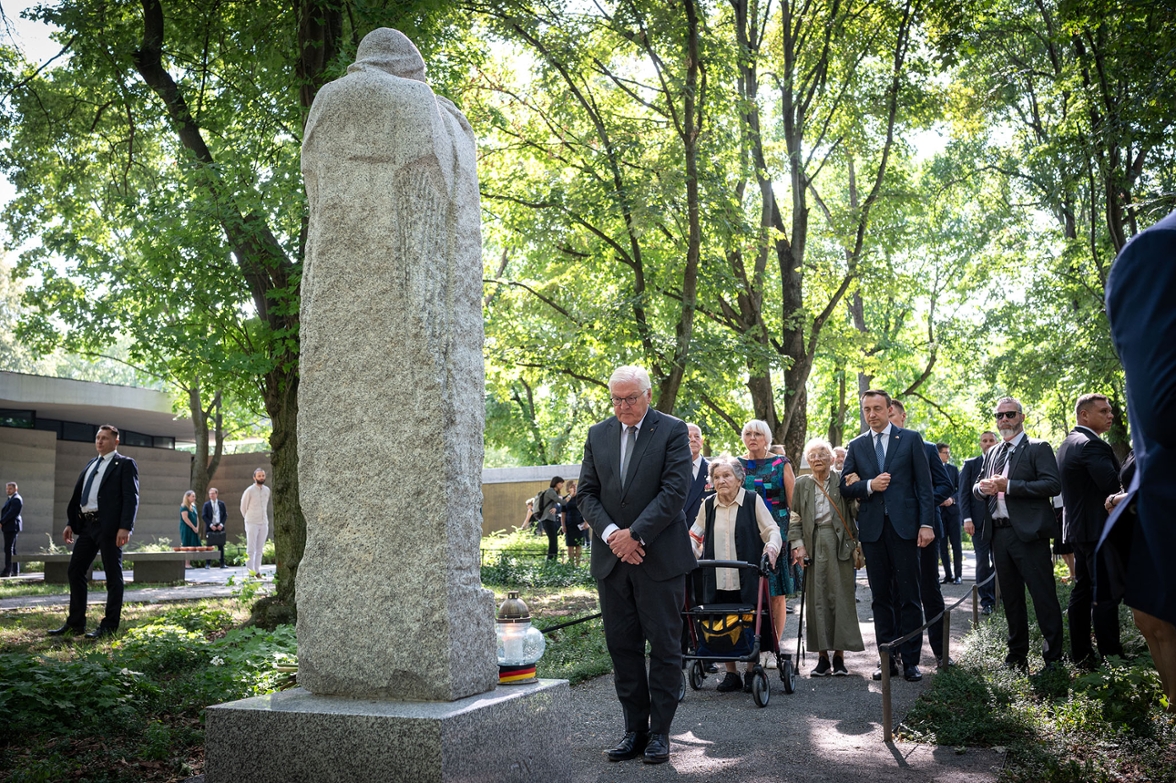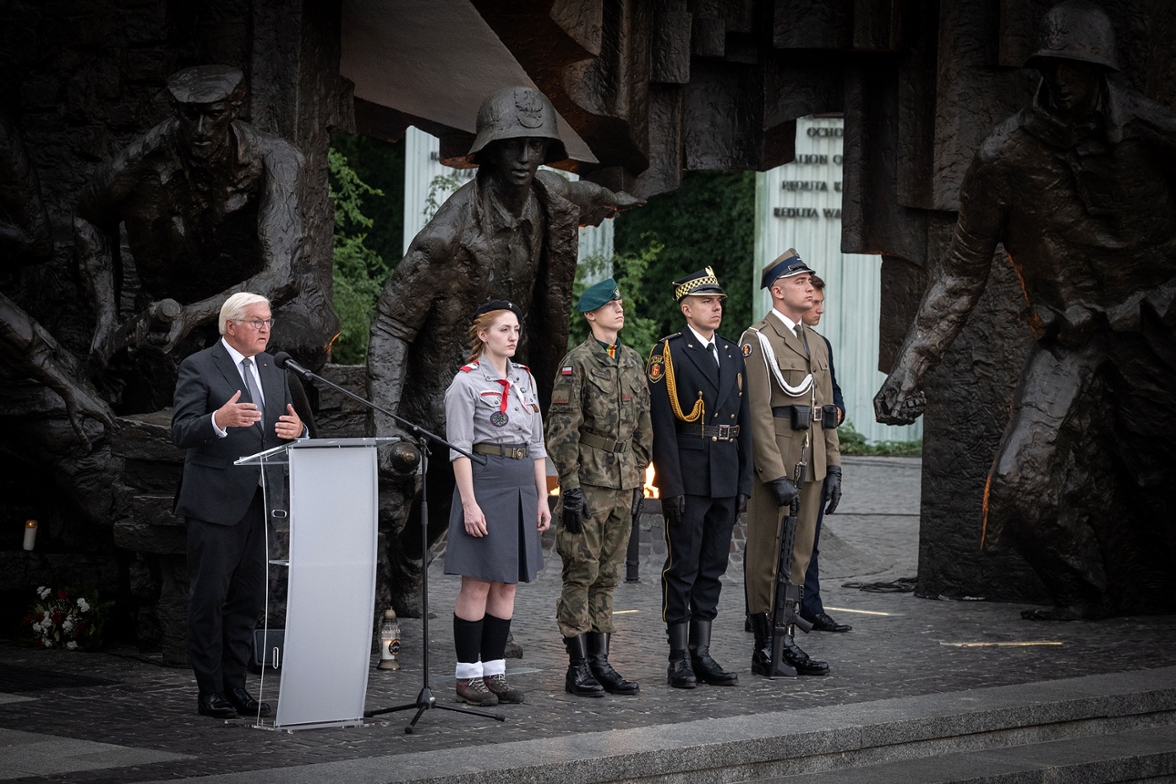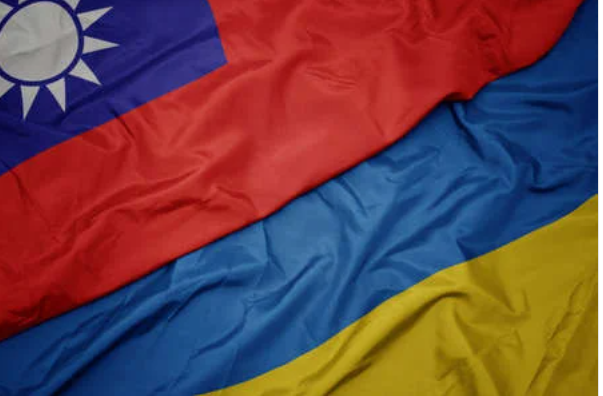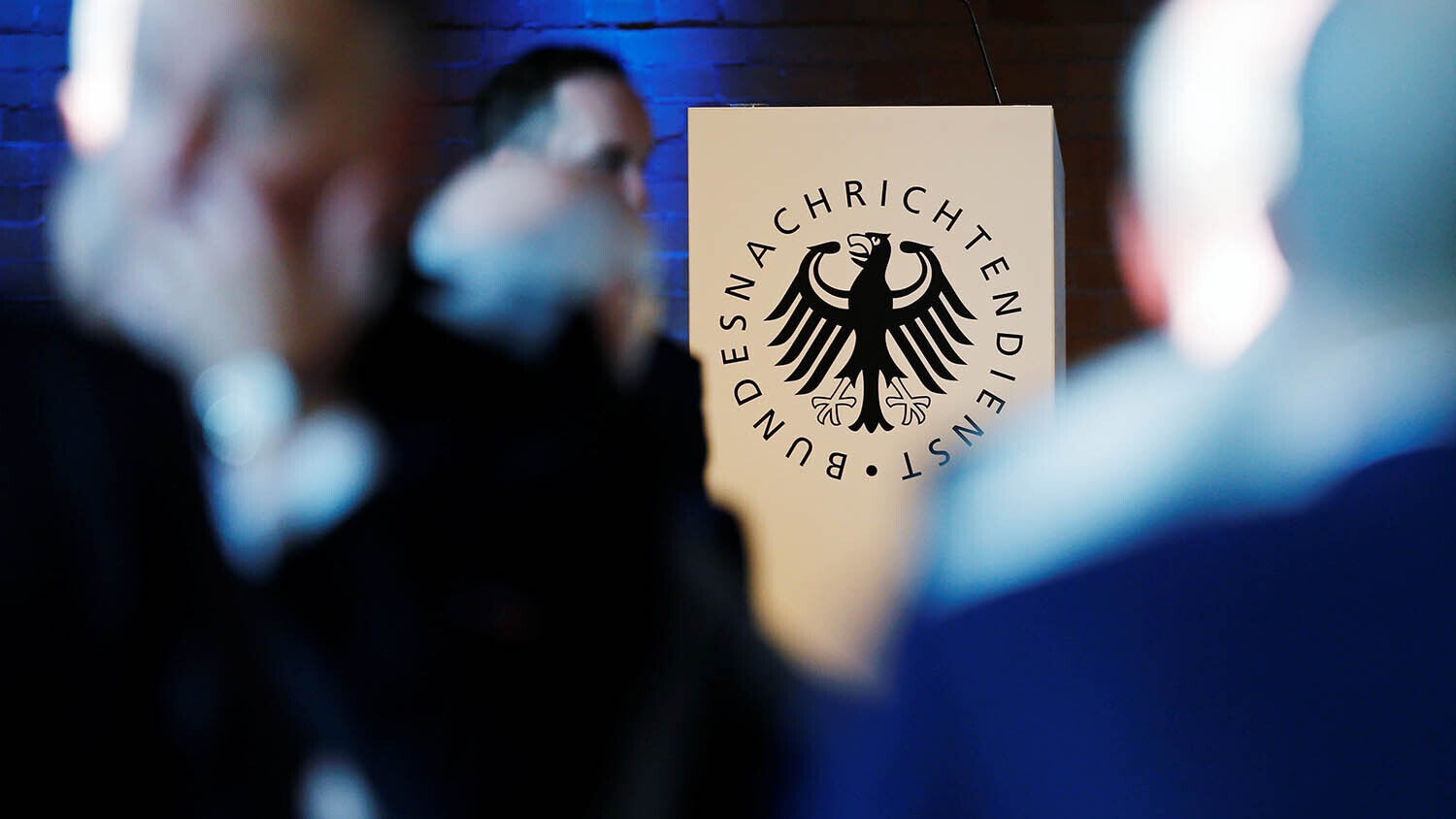All photos by Der Bundespräsident
Federal President of Germany Frank-Walter Steinmeier has apologized to the Polish people for the crimes committed by the Nazis during World War II. He made this statement in his speech in the Polish capital ahead of the 80th anniversary of the Warsaw Uprising, which is commemorated on August 1.
Steinmeier described the uprising by the Home Army against German occupying forces, which lasted 63 days, as a testament to the will for self-assertion. He also recalled the Polish freedom movement of the 1980s, which served as a model for many others and ultimately led to freedom in Central and Eastern Europe, as well as in East Germany.
The President urged never to forget the suffering inflicted on the neighboring country by the German occupiers, who acted with cruelty and a desire for destruction against the entire population.
“Dear veterans, every word seems too weak for this horror. Therefore, I want to say one sentence. But it comes completely from the heart: I ask for forgiveness, especially today and especially here,” said the German president.
Steinmeier dedicated part of his speech to contemporary events, noting that today, Poles and Germans have committed to working together and promoting peace on the continent.
“And we do this together, defending our borders and our alliance and supporting Ukraine… Putin has brought war back to Europe… he wants to destroy Ukraine and threatens all of us. That’s why it is important now and in the coming years: let us stay united in Europe! Let us be strong! Let us remain faithful to the values we have achieved together: freedom, democracy, and justice!” the President urged.

He emphasized that “no one in Europe is fighting as courageously and heroically as the Ukrainian people, who are fighting for their freedom and self-determination, battling a cruel and ruthless aggressor.” Poles and Germans have been and remain united in supporting the Ukrainian people in their heroic struggle and their path to the European Union, said the politician.
“We will never again accept injustice and lack of freedom, attacks, and occupation in Europe,” Steinmeier declared.
On August 1, 1944, the Warsaw Uprising against the Nazi occupiers began, organized by the command of the Home Army and representatives of the Polish government in exile. The Soviet army did not come to the aid, although some historians claim it could have. During the uprising, more than 50,000 people, mostly civilians, were killed. It became a symbol of resistance to German occupation, demonstrating the Poles' will to oppose totalitarianism.
Roman Herzog was the first German president to visit Warsaw at the invitation of then-President of Poland Lech Wałęsa in connection with the 50th anniversary of the uprising, in 1994.





















